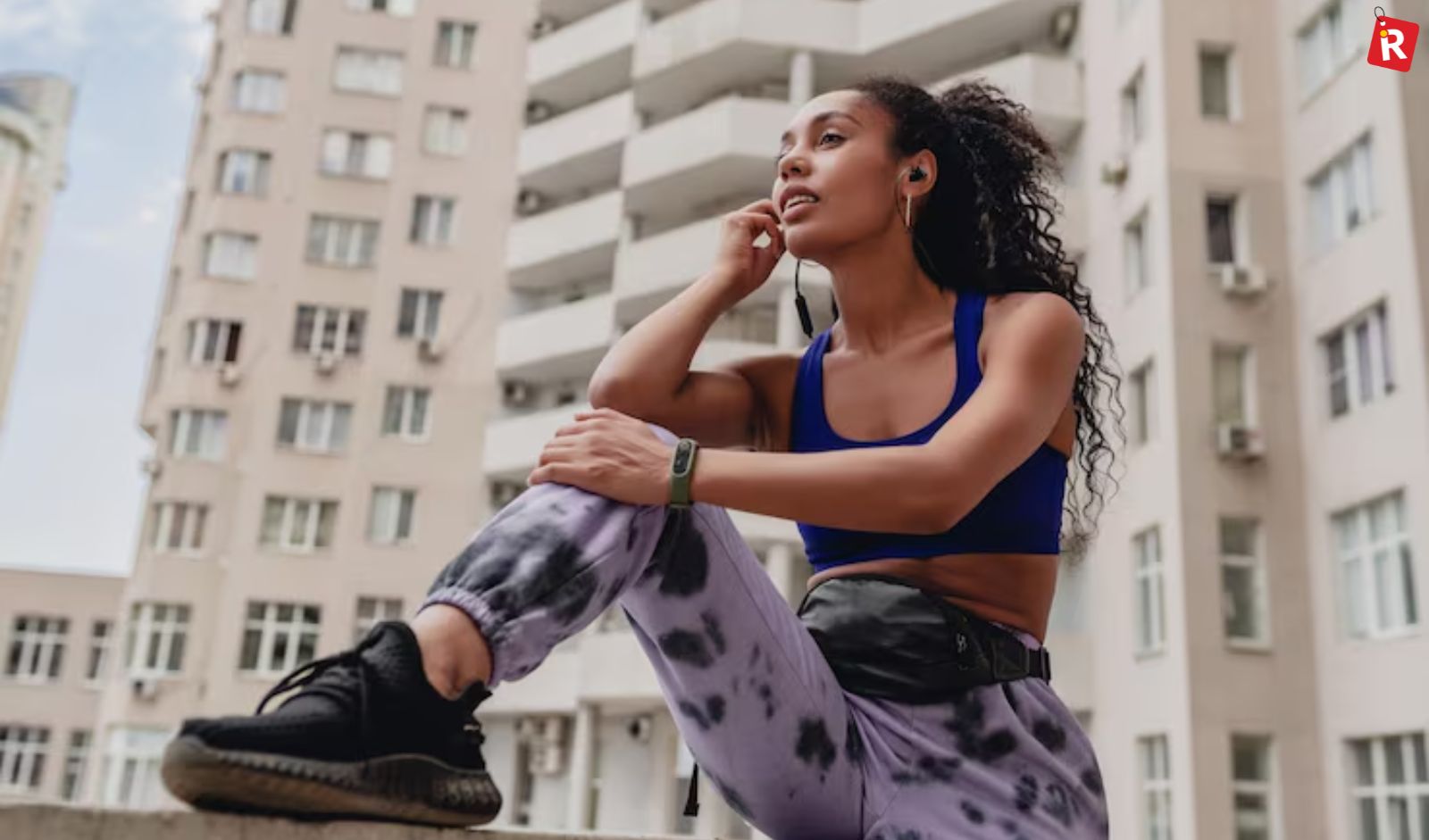 Athleisure is becoming everyday clothing for many Indians. As more people choose comfort and versatility, brands offering practical, easy-to-wear products are seeing steady growth, making athleisure a regular part of daily wardrobes.
Athleisure is becoming everyday clothing for many Indians. As more people choose comfort and versatility, brands offering practical, easy-to-wear products are seeing steady growth, making athleisure a regular part of daily wardrobes.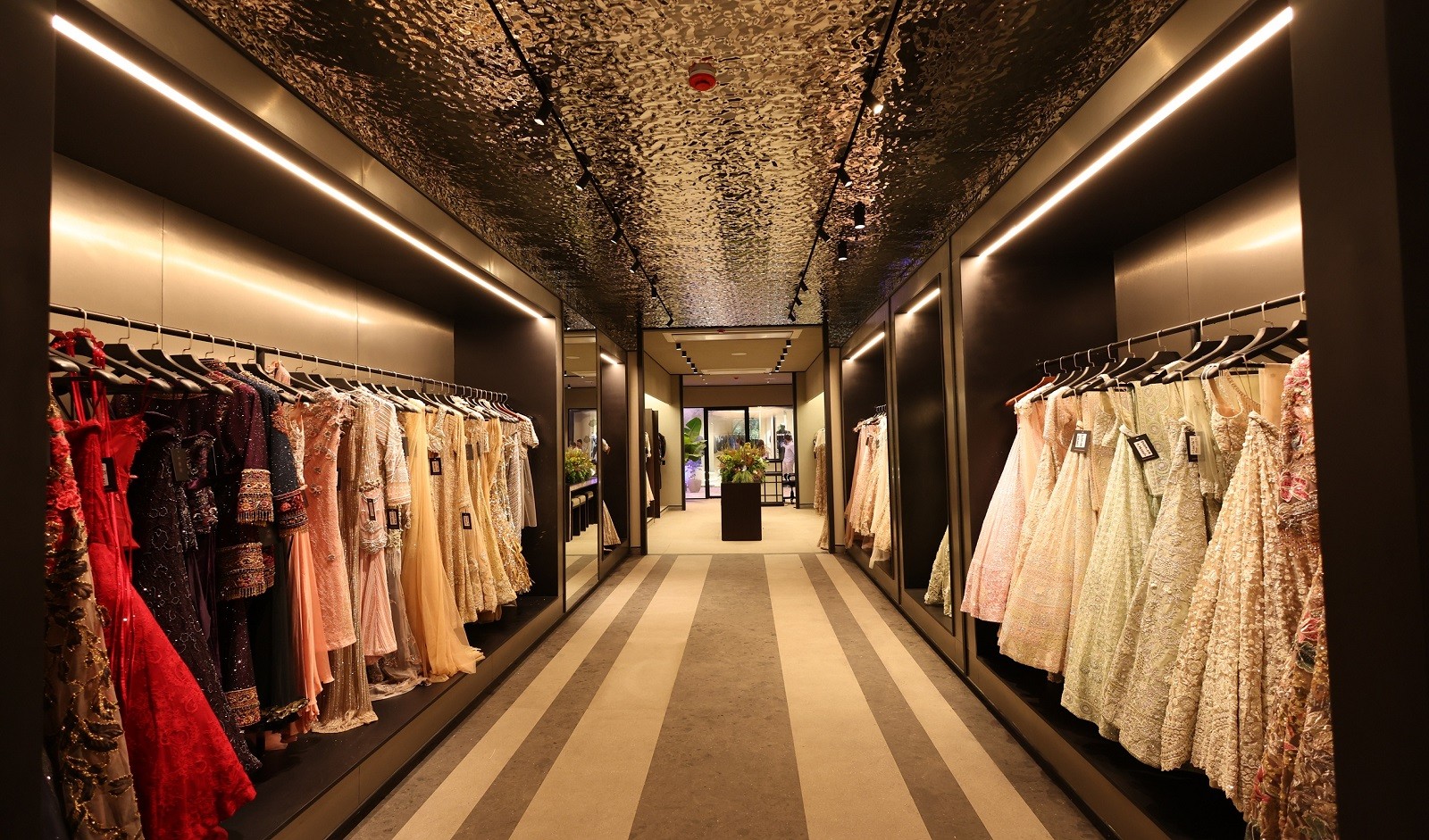 India’s luxury fashion industry is entering a new growth phase, with designers increasingly investing in flagship stores to gain greater control over brand storytelling, customer engagement, and long-term scalability.
India’s luxury fashion industry is entering a new growth phase, with designers increasingly investing in flagship stores to gain greater control over brand storytelling, customer engagement, and long-term scalability.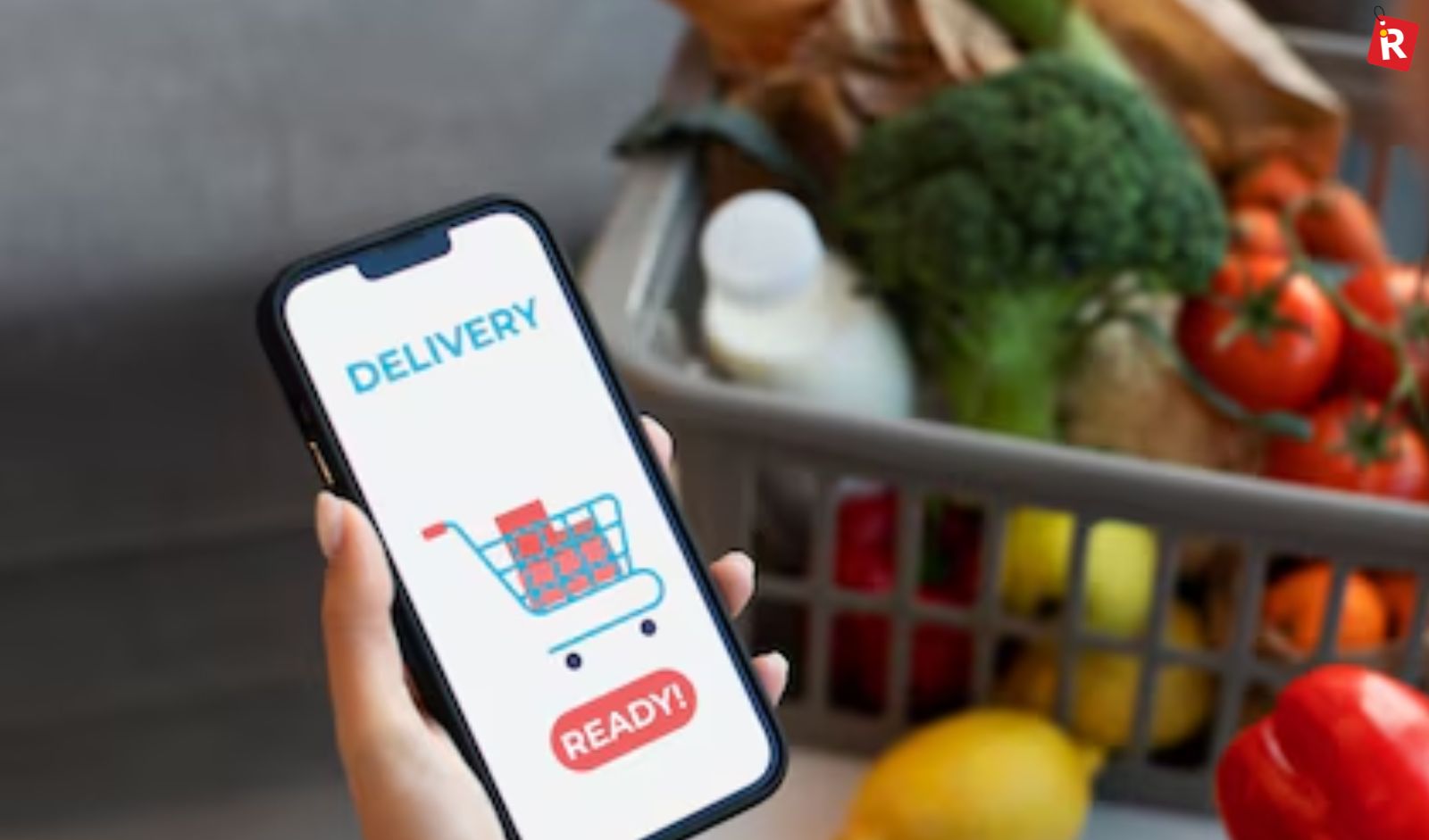 AI is playing a pivotal role in scaling online grocery retail in India by helping platforms navigate the country’s highly fragmented and dynamic consumption patterns. From forecasting hyperlocal demand and managing perishability to optimizing supply chain
AI is playing a pivotal role in scaling online grocery retail in India by helping platforms navigate the country’s highly fragmented and dynamic consumption patterns. From forecasting hyperlocal demand and managing perishability to optimizing supply chain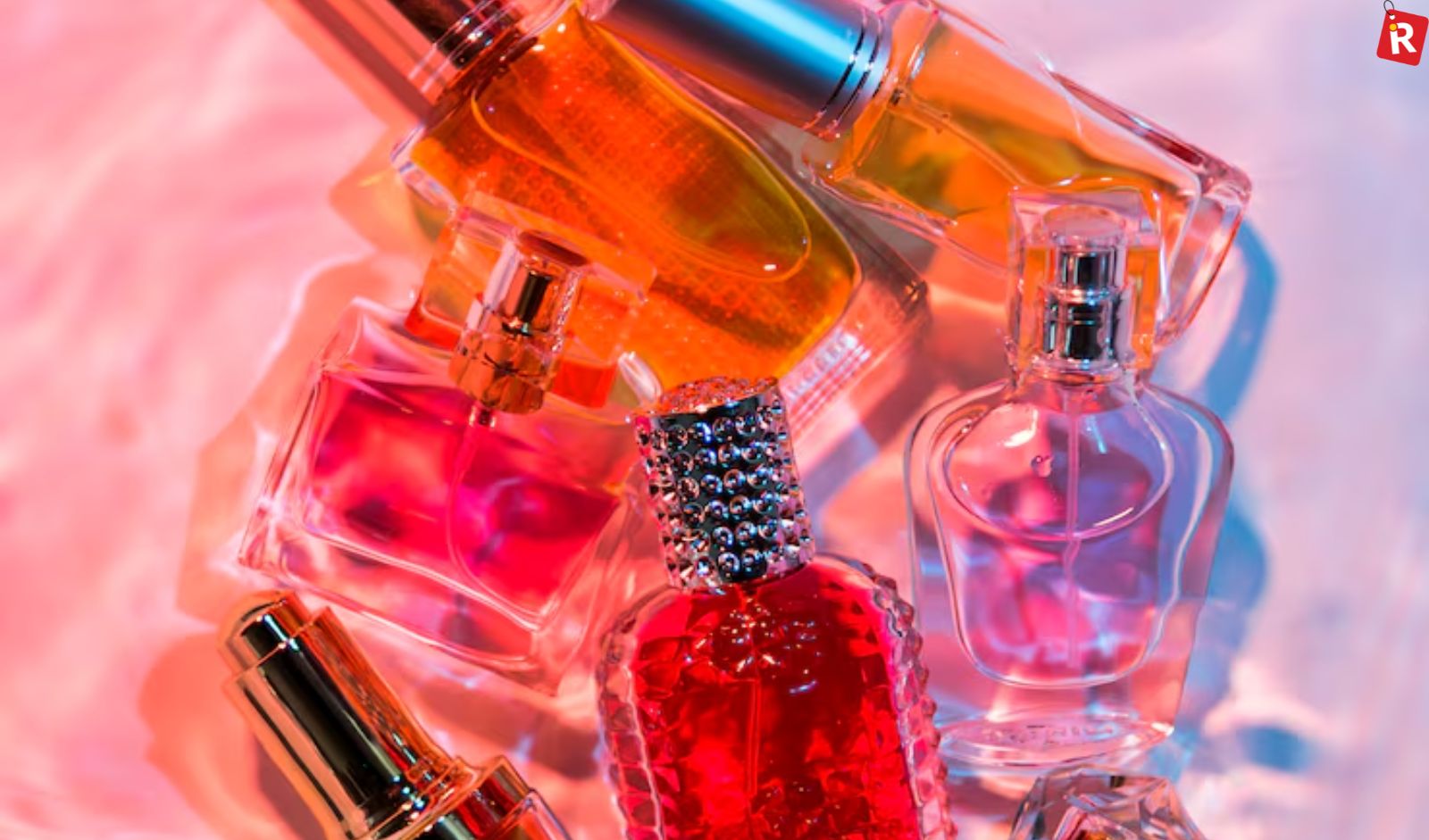 India’s fragrance market is no longer confined to deodorants picked up as an afterthought at the kirana or pharmacy counter. Over the last few years, perfumes have moved decisively into the mainstream, driven by changing consumer mindsets, deeper retail p
India’s fragrance market is no longer confined to deodorants picked up as an afterthought at the kirana or pharmacy counter. Over the last few years, perfumes have moved decisively into the mainstream, driven by changing consumer mindsets, deeper retail p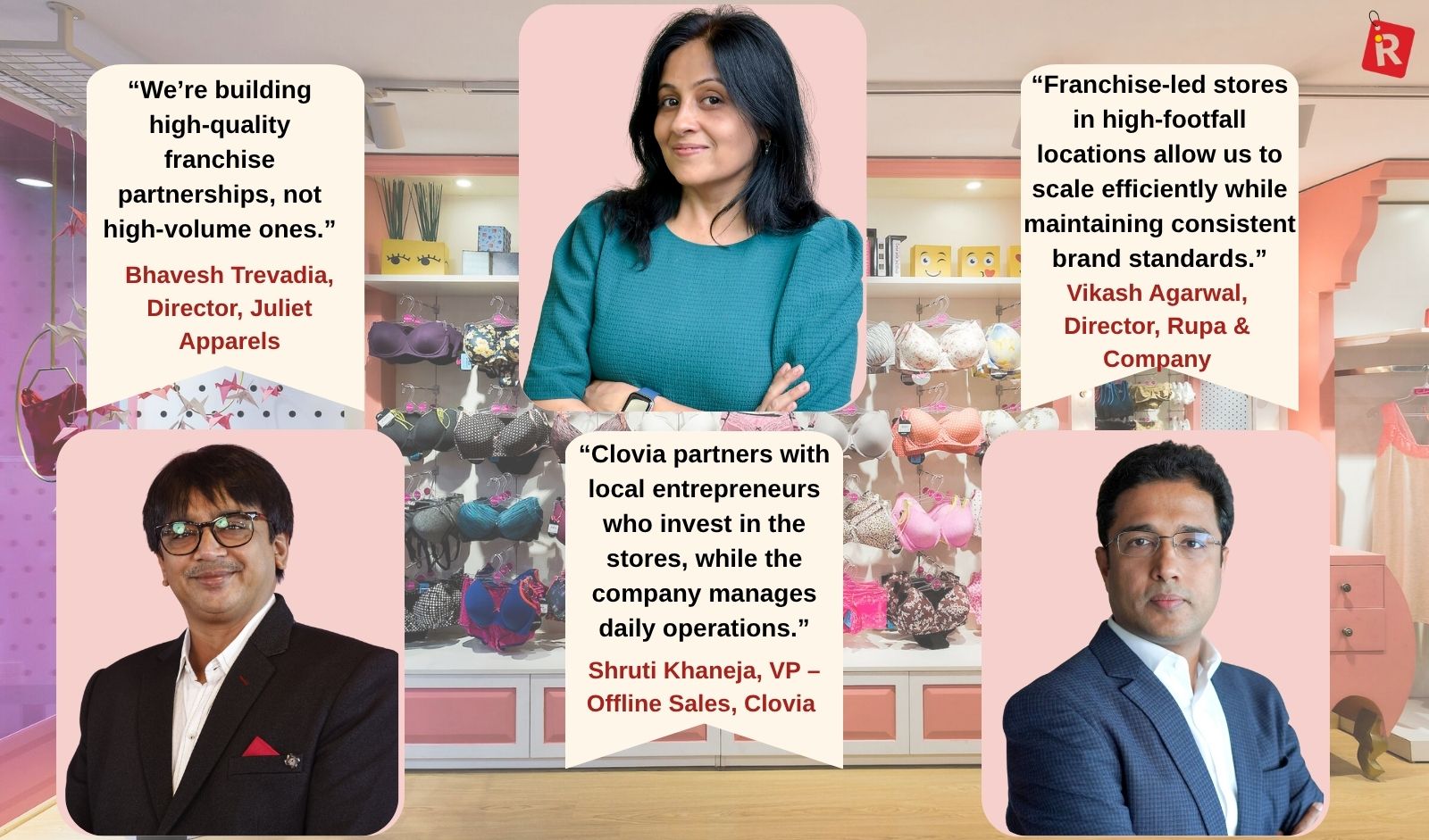 Here we delve into how leading brands like Clovia, Rupa, Jockey and Juliet are driving the next wave of growth with franchise-led expansion and a strong focus on Tier II and III markets.
Here we delve into how leading brands like Clovia, Rupa, Jockey and Juliet are driving the next wave of growth with franchise-led expansion and a strong focus on Tier II and III markets.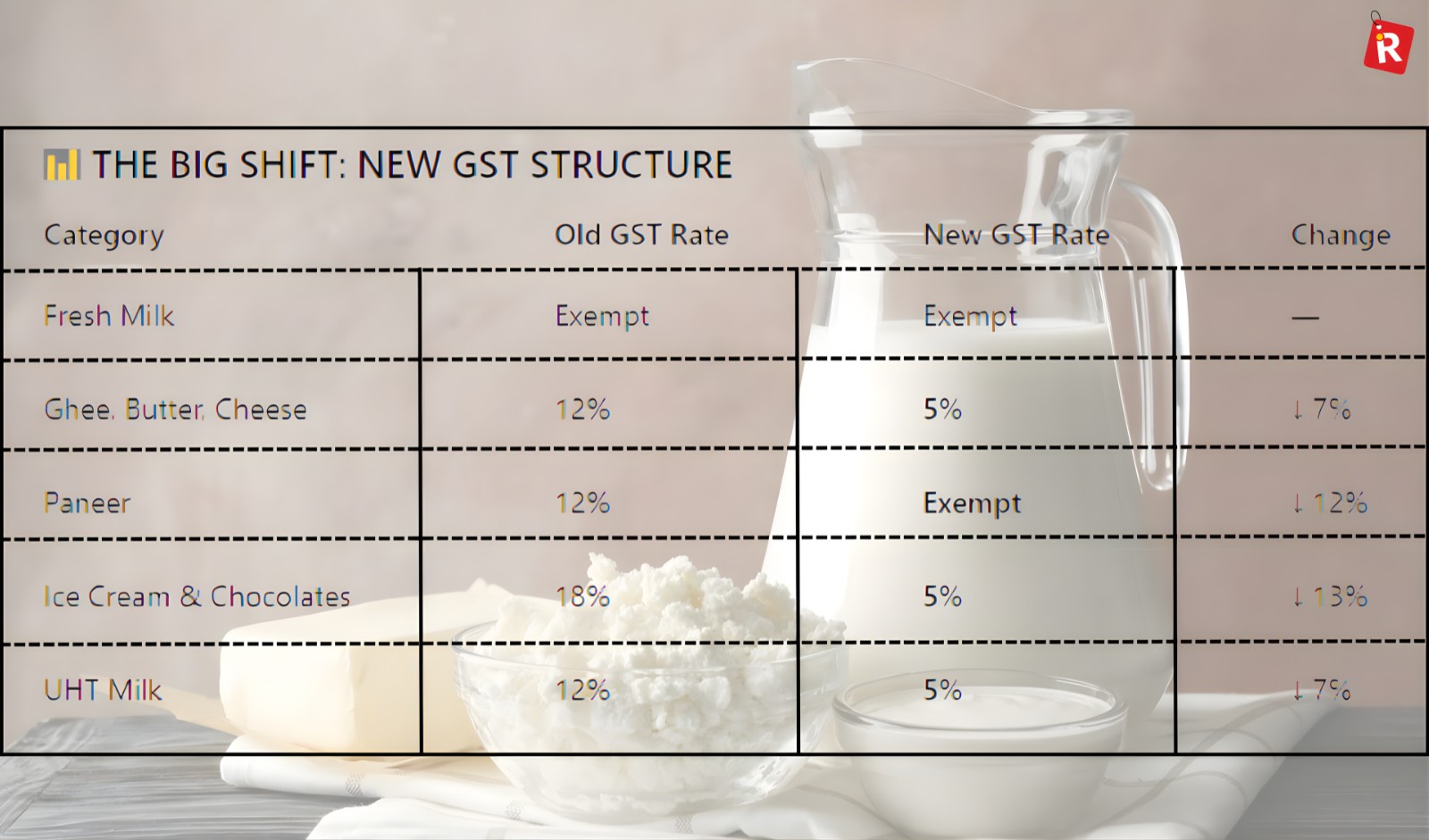 Major dairy players like Amul, Heritage Foods, and Milky Mist have slashed prices after the GST rate cut, making milk and milk products more affordable this festive season.
Major dairy players like Amul, Heritage Foods, and Milky Mist have slashed prices after the GST rate cut, making milk and milk products more affordable this festive season.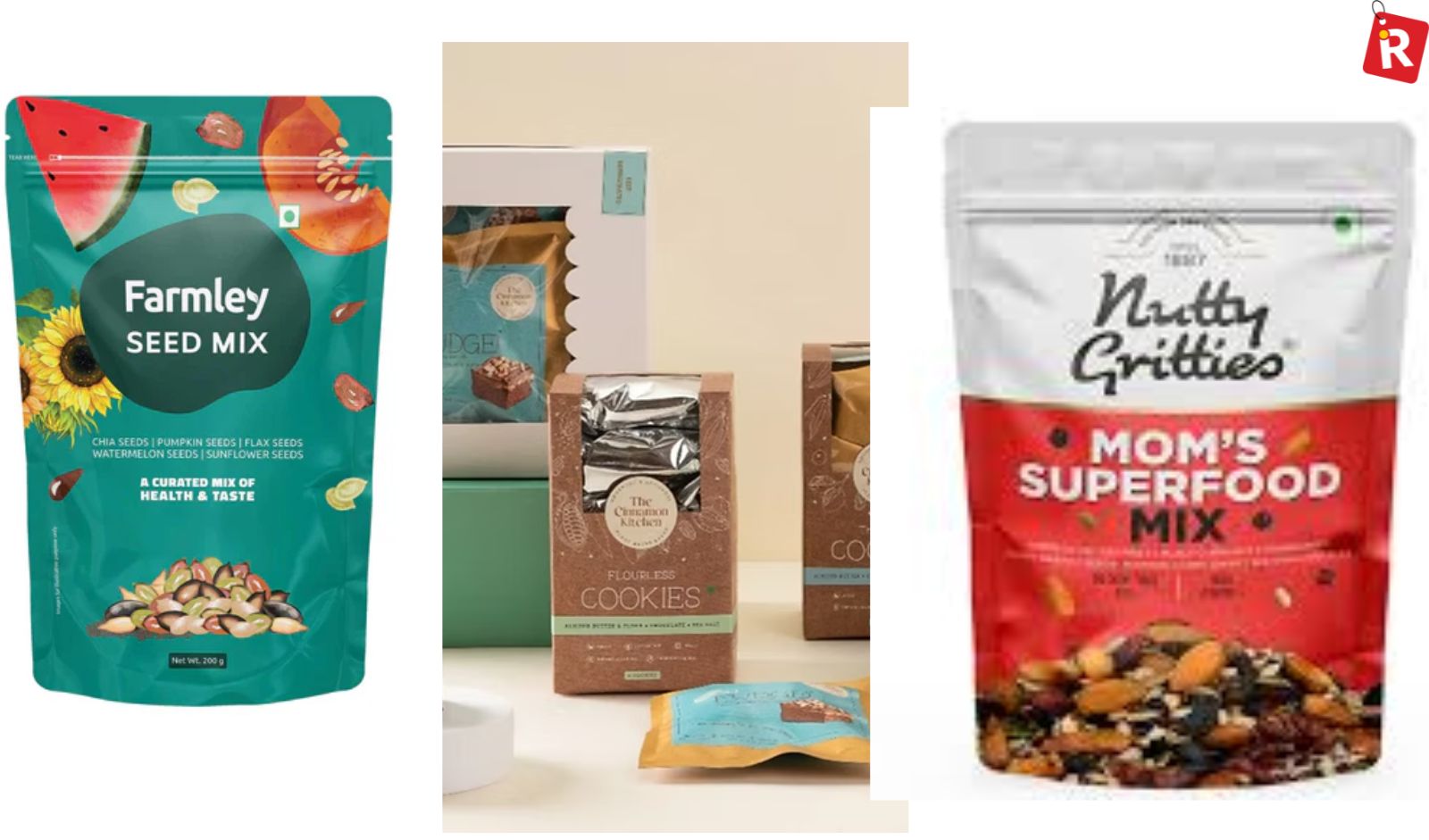 Snacking in India is getting a healthy makeover. As more people choose mindful eating and nutritious options, homegrown brands are changing the way we think about snacks. From nuts and trail mixes to clean desserts and makhana-based treats, homegrown bran
Snacking in India is getting a healthy makeover. As more people choose mindful eating and nutritious options, homegrown brands are changing the way we think about snacks. From nuts and trail mixes to clean desserts and makhana-based treats, homegrown bran- K-beauty’s journey in India has shifted from fascination to fierce loyalty., with brands like Amorepacific and kindlife leading the charge.
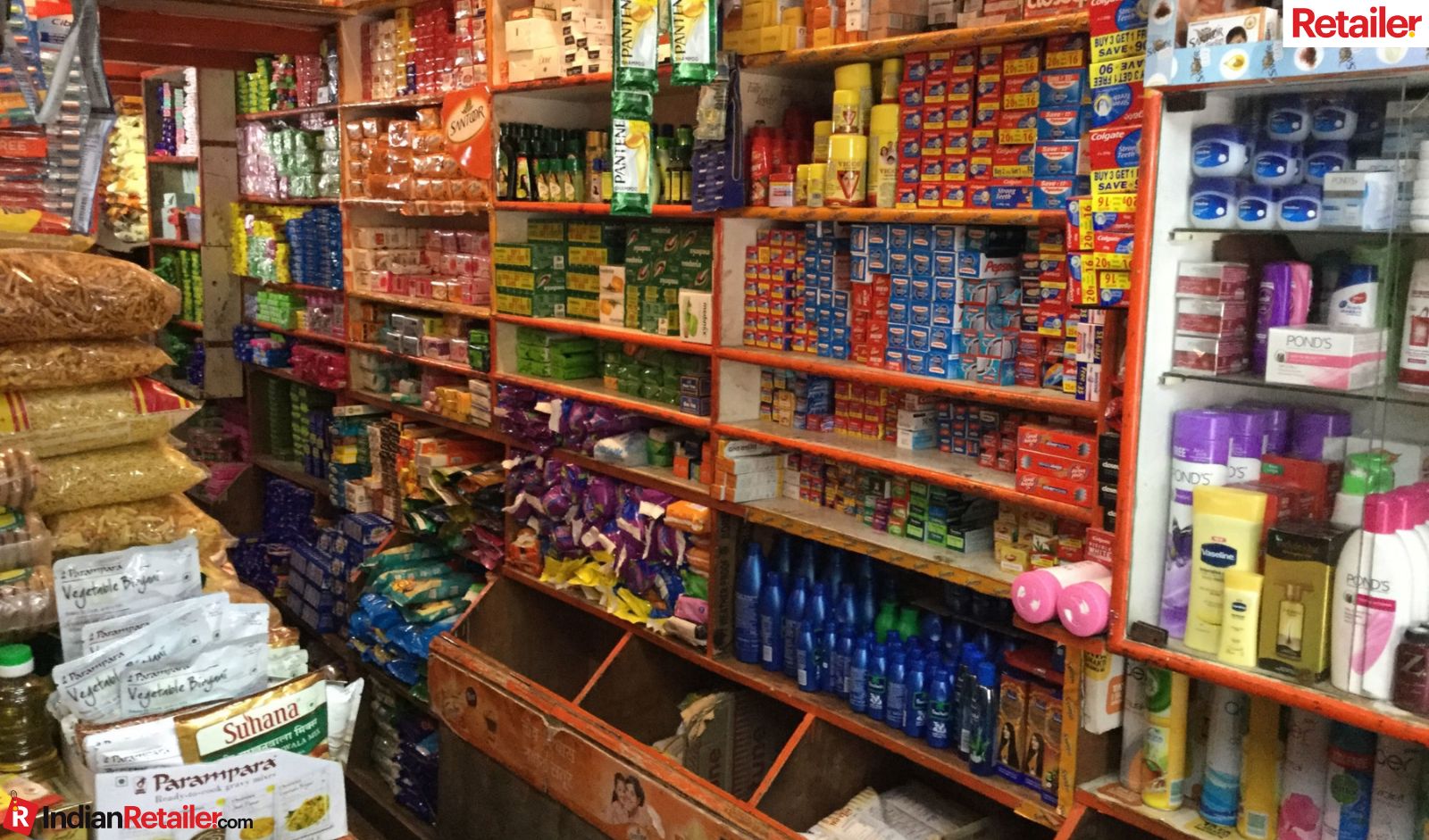 India’s 13 million kiranas are rapidly going digital, blending tradition with tech to stay competitive in modern retail.
India’s 13 million kiranas are rapidly going digital, blending tradition with tech to stay competitive in modern retail.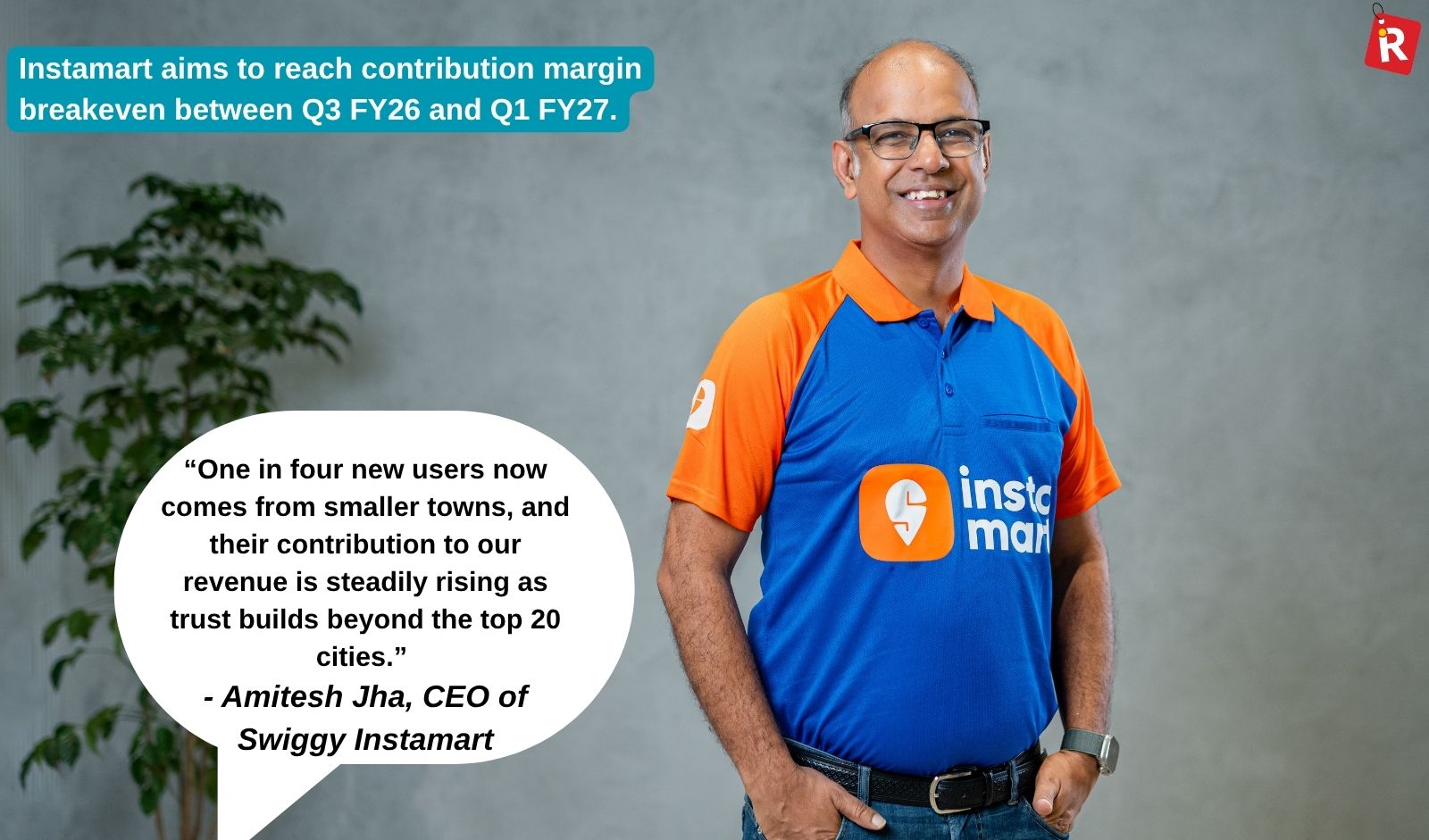 Instamart has transformed quick commerce in India from a bold experiment into a Rs 5,655 crore business that now serves over 11 million monthly users across 125+ cities.
Instamart has transformed quick commerce in India from a bold experiment into a Rs 5,655 crore business that now serves over 11 million monthly users across 125+ cities.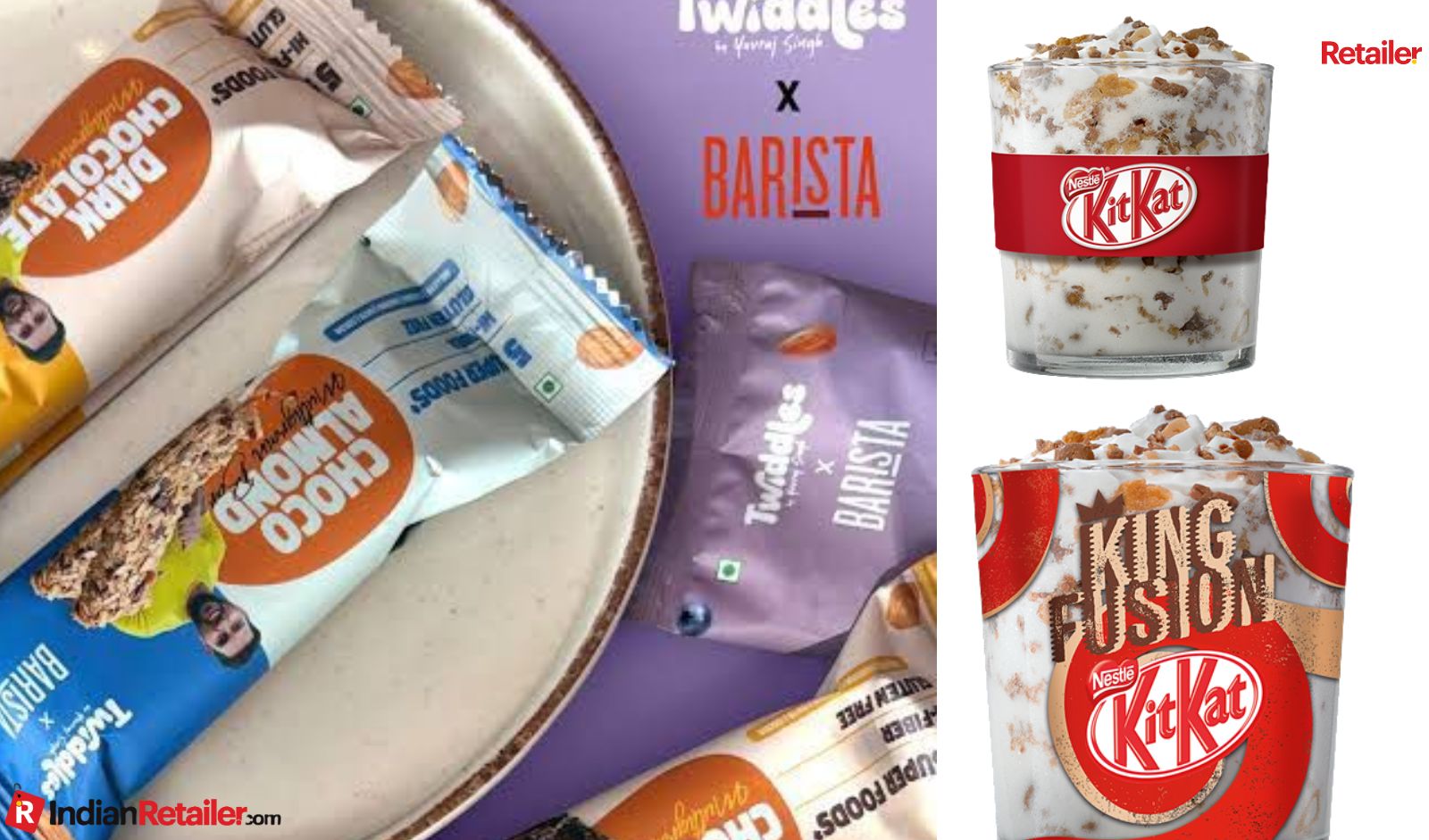 Food brands in India are increasingly turning to smart collaborations to boost visibility, spark consumer excitement, and drive long-term growth.
Food brands in India are increasingly turning to smart collaborations to boost visibility, spark consumer excitement, and drive long-term growth.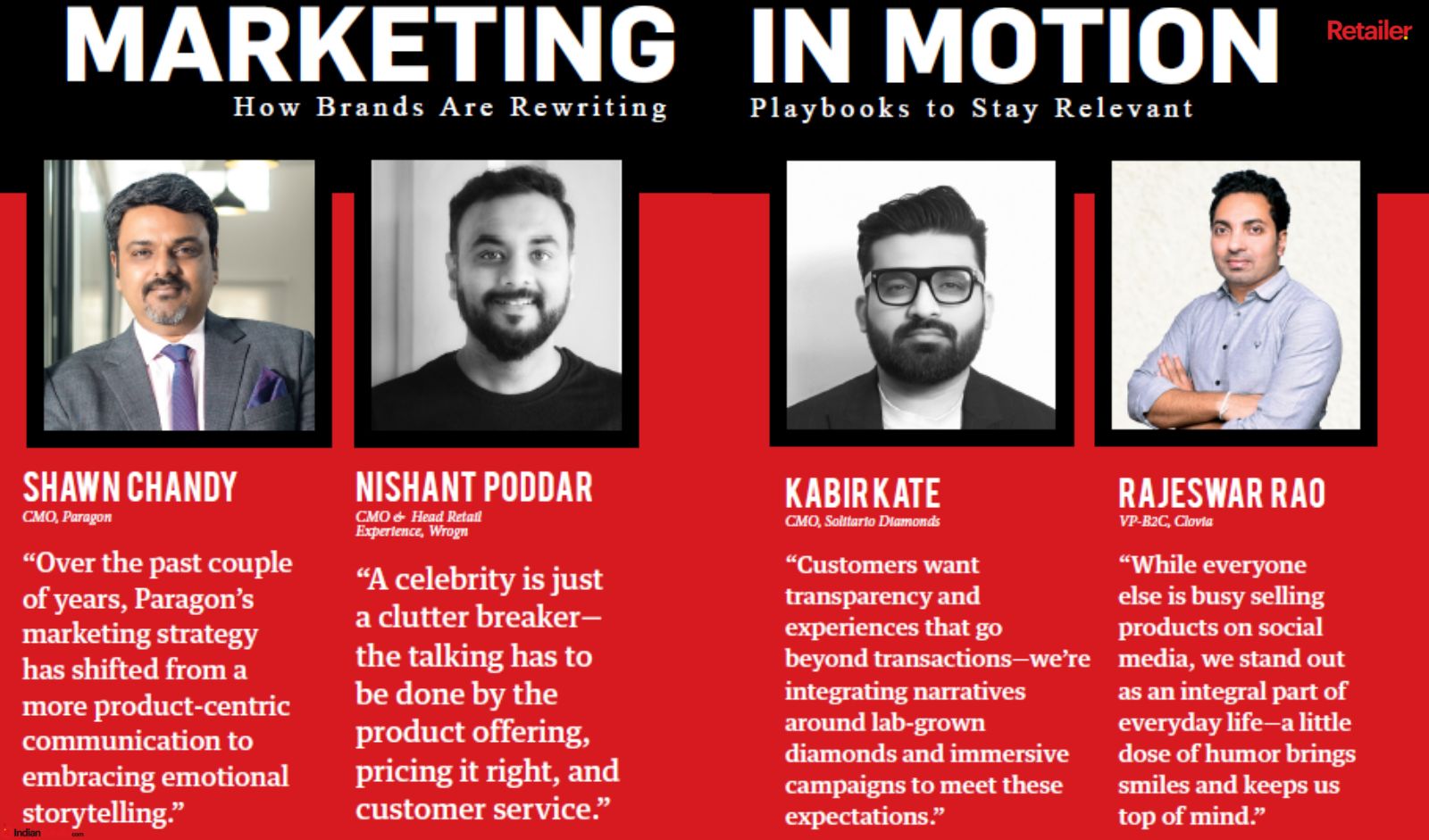 From footwear to fashion, jewelry to lingerie, brands are rethinking how they connect with consumers in an era shaped by personalization, technology, and community-driven engagement.
From footwear to fashion, jewelry to lingerie, brands are rethinking how they connect with consumers in an era shaped by personalization, technology, and community-driven engagement.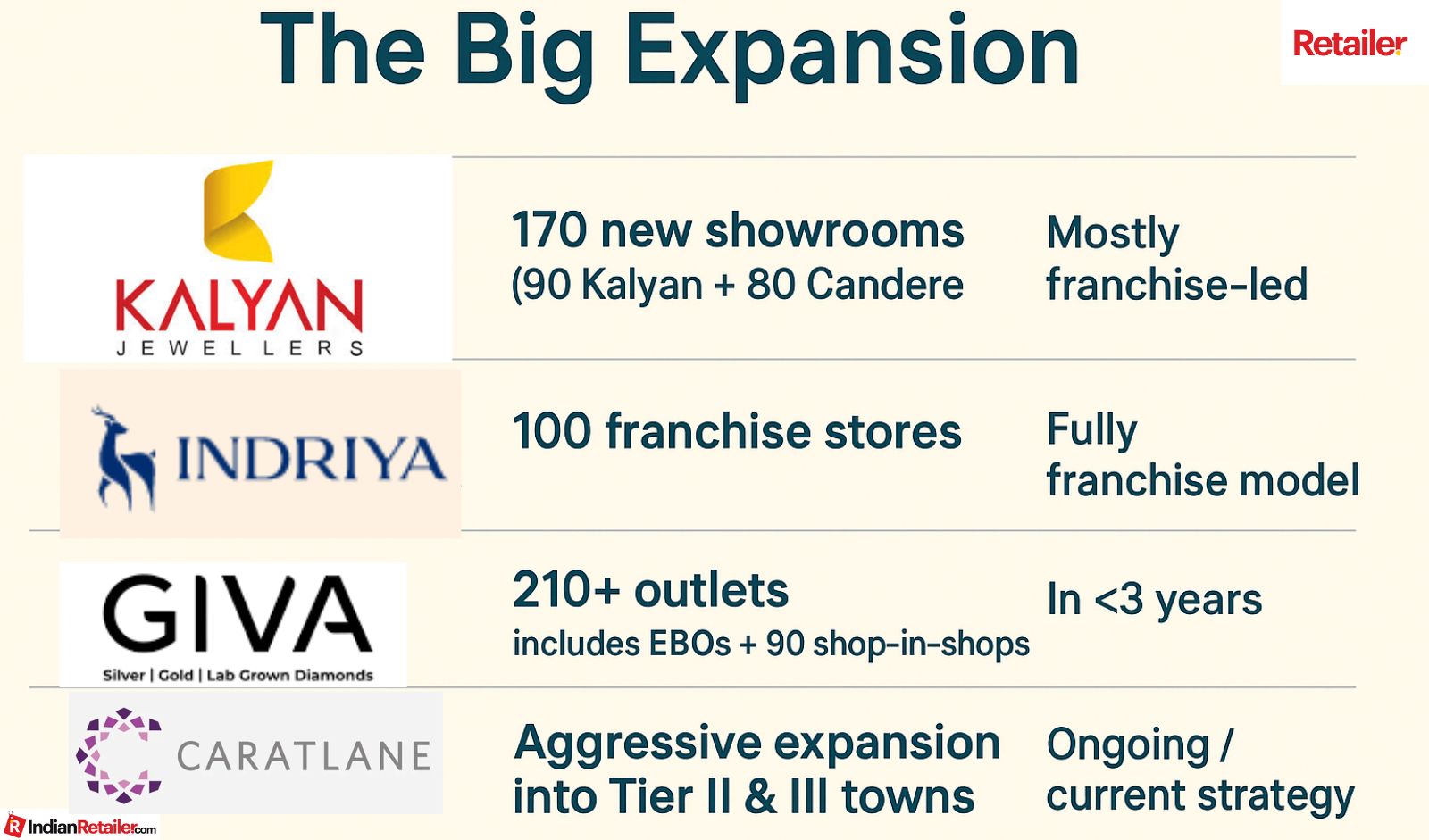 India’s jewelry market is undergoing a retail boom, with brands aggressively expanding through franchising, SiS formats, and omnichannel strategies. From Tier II & III cities to diaspora-driven global markets, players are racing to build footprints.
India’s jewelry market is undergoing a retail boom, with brands aggressively expanding through franchising, SiS formats, and omnichannel strategies. From Tier II & III cities to diaspora-driven global markets, players are racing to build footprints.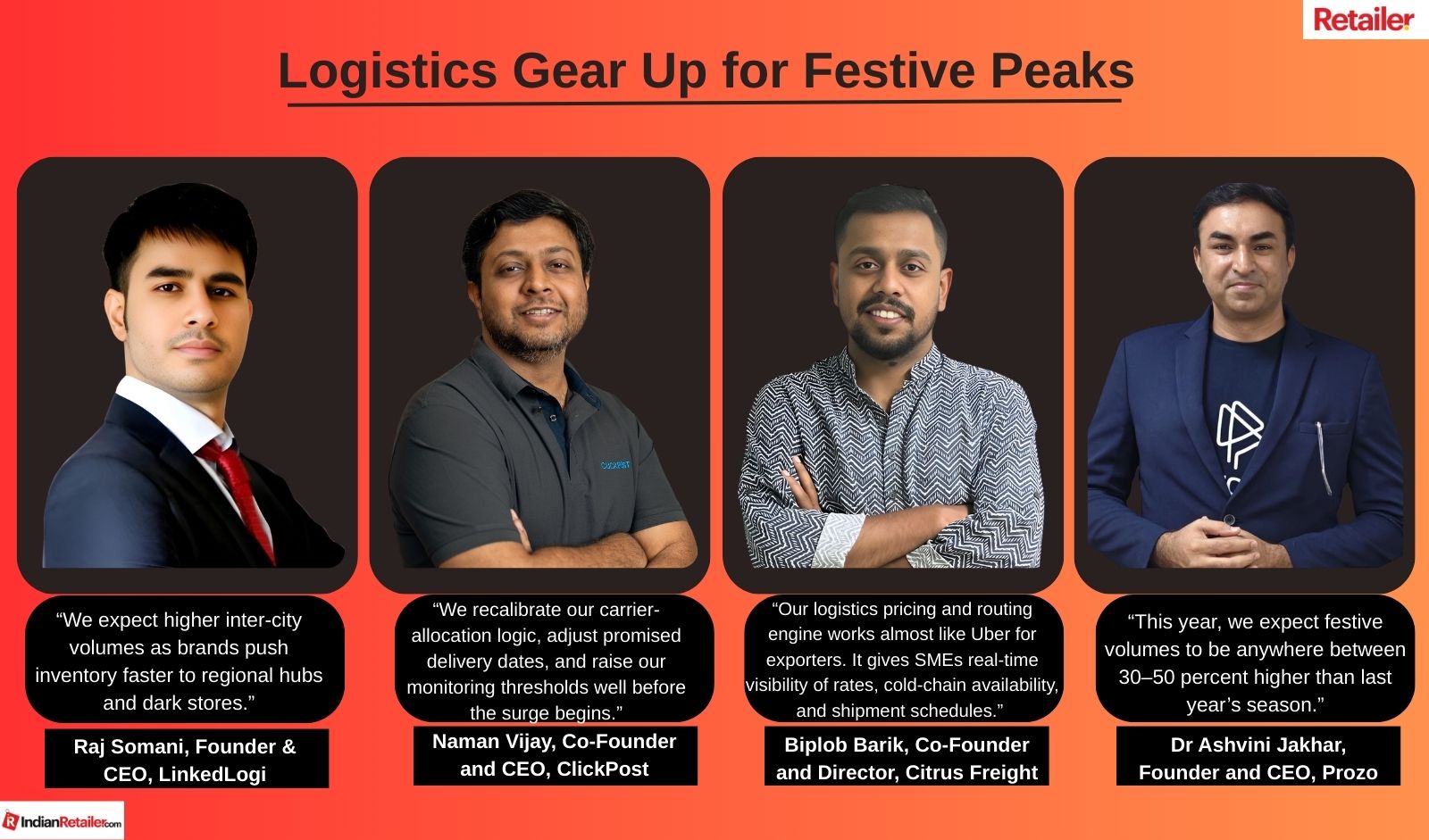 From AI-driven carrier allocation to multimodal networks and omnichannel readiness, logistics leaders are rewriting their festive playbook to keep pace with the evolving demands of retailers and shoppers alike.
From AI-driven carrier allocation to multimodal networks and omnichannel readiness, logistics leaders are rewriting their festive playbook to keep pace with the evolving demands of retailers and shoppers alike. 84 percent of consumers believe frozen snacks allow them to enjoy restaurant-style food at home, while 73 percent say they taste just as good as freshly prepared meals.
84 percent of consumers believe frozen snacks allow them to enjoy restaurant-style food at home, while 73 percent say they taste just as good as freshly prepared meals. How India’s Retail Game is now about celebrity equity and skin in the game
How India’s Retail Game is now about celebrity equity and skin in the game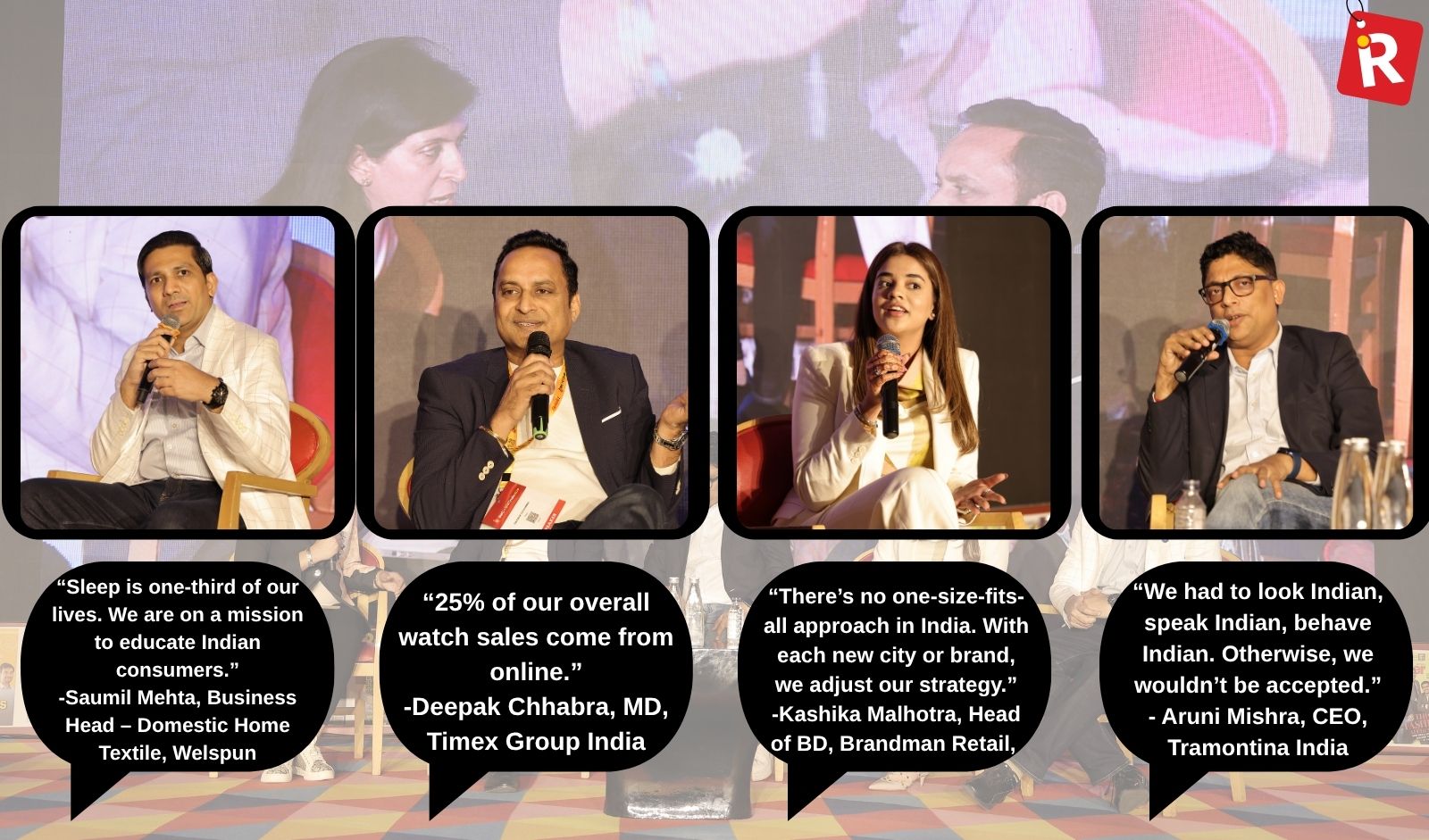 From premium fashion accessories to home textiles and cookware, business heads are adapting their approach to resonate with diverse audiences, optimizing both offline and digital channels for reach, experience, and convenience.
From premium fashion accessories to home textiles and cookware, business heads are adapting their approach to resonate with diverse audiences, optimizing both offline and digital channels for reach, experience, and convenience. In this fast-evolving landscape, what defines success is not just product innovation, but the ability to create deeply personal and trust-filled relationships with consumers—both online and offline.
In this fast-evolving landscape, what defines success is not just product innovation, but the ability to create deeply personal and trust-filled relationships with consumers—both online and offline. While the supply side grapples with reconfiguration, the demand side has undergone a revolution of its own. According to Goel, consumer expectations have dramatically evolved over the past two decades.
While the supply side grapples with reconfiguration, the demand side has undergone a revolution of its own. According to Goel, consumer expectations have dramatically evolved over the past two decades. In this evolving narrative, new-age players like ace turtle, TMRW (an Aditya Birla Group venture), and HomeLane are not just navigating the change but shaping it through innovation, agility, and a deep understanding of their consumers.
In this evolving narrative, new-age players like ace turtle, TMRW (an Aditya Birla Group venture), and HomeLane are not just navigating the change but shaping it through innovation, agility, and a deep understanding of their consumers. The insights reveal a profound narrative of continuity, where traditions endure even as the channels and tools around them transform radically.
The insights reveal a profound narrative of continuity, where traditions endure even as the channels and tools around them transform radically. As Tier II, III and IV cities step into the spotlight, Bharat is no longer just a market on the rise — it's the epicenter of a billion-dollar consumption boom. From premium fashion to high-tech kitchenware, small-town India is redefining aspiration, acces
As Tier II, III and IV cities step into the spotlight, Bharat is no longer just a market on the rise — it's the epicenter of a billion-dollar consumption boom. From premium fashion to high-tech kitchenware, small-town India is redefining aspiration, acces In a digital economy obsessed with scale, a new breed of Indian startups is flipping the script. Instead of chasing the masses, they’re zooming in—on hyper-specific audiences, under-served needs, and razor-sharp relevance.
In a digital economy obsessed with scale, a new breed of Indian startups is flipping the script. Instead of chasing the masses, they’re zooming in—on hyper-specific audiences, under-served needs, and razor-sharp relevance. Levi’s commitment has always been to remain culturally relevant and deeply connected to its consumers. In India, this ethos takes on a powerful, localized form.
Levi’s commitment has always been to remain culturally relevant and deeply connected to its consumers. In India, this ethos takes on a powerful, localized form.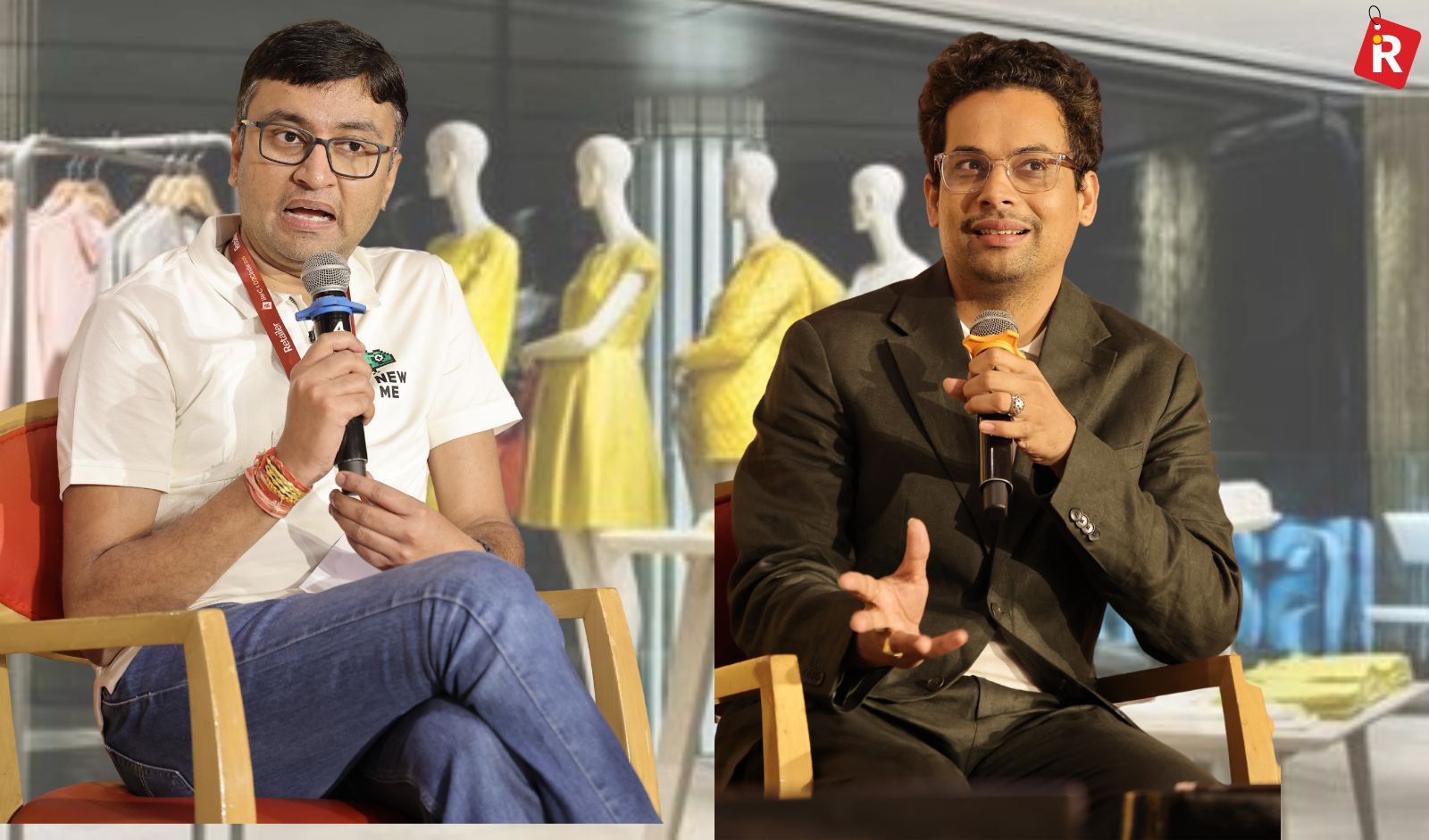 Today’s youth aren’t chasing logos — they’re chasing likes. With Instagram as their style compass and speed as their currency, a new wave of masstige fashion brands like Urbanic and NewMe are rewriting the rulebook.
Today’s youth aren’t chasing logos — they’re chasing likes. With Instagram as their style compass and speed as their currency, a new wave of masstige fashion brands like Urbanic and NewMe are rewriting the rulebook. Many predict that the market will not only accelerate but, at the very least, sustain its current growth momentum.
Many predict that the market will not only accelerate but, at the very least, sustain its current growth momentum. From 30-minute deliveries to fashion trends dropping daily, and 350 million online shoppers demanding instant, personalized experiences, this is no longer a story of catching up. It’s about leaping ahead.
From 30-minute deliveries to fashion trends dropping daily, and 350 million online shoppers demanding instant, personalized experiences, this is no longer a story of catching up. It’s about leaping ahead. As global demand for fragrant, traceable rice soars, India is turning its age-old grain into a modern luxury — and leaving competitors scrambling to catch up.
As global demand for fragrant, traceable rice soars, India is turning its age-old grain into a modern luxury — and leaving competitors scrambling to catch up. These trends are driving innovation and redefining how consumers shop for and engage with food products.
These trends are driving innovation and redefining how consumers shop for and engage with food products. With its roots in gourmet popcorn, the brand has transcended traditional boundaries, introducing a fresh perspective to snacking.
With its roots in gourmet popcorn, the brand has transcended traditional boundaries, introducing a fresh perspective to snacking.- The Indian retail industry stands at a crossroads of tradition and innovation. By localizing global experiences, embracing meaningful collaborations, and continuously evolving, brands are not only meeting but exceeding consumer expectations.
 In today’s fast-paced world, the right marketing approach isn’t just crucial for staying afloat — it’s the driving force behind brand reinvention and expansion. Ready to discover the secret sauce of three giant retail brands in India?
In today’s fast-paced world, the right marketing approach isn’t just crucial for staying afloat — it’s the driving force behind brand reinvention and expansion. Ready to discover the secret sauce of three giant retail brands in India? By the end of the year, Modern Bazaar plans to operate 25 stores, including the expansion of its “express format” stores.
By the end of the year, Modern Bazaar plans to operate 25 stores, including the expansion of its “express format” stores. From rural markets holding steady despite slowdowns to urban demand showing early signs of recovery, the FMCG industry is positioning itself for a potential rebound in the New Year.
From rural markets holding steady despite slowdowns to urban demand showing early signs of recovery, the FMCG industry is positioning itself for a potential rebound in the New Year. From coining “Customer Care Associate” to pioneering omnichannel retail in India, BS Nagesh has left an indelible mark on the industry. His story is not just about business; it’s about a lifetime of leading with empathy, purpose, and serving.
From coining “Customer Care Associate” to pioneering omnichannel retail in India, BS Nagesh has left an indelible mark on the industry. His story is not just about business; it’s about a lifetime of leading with empathy, purpose, and serving.- From leveraging shared resources to creating groundbreaking products, brand collaboration is reshaping how businesses operate in today’s interconnected world.
 As global giants and homegrown labels race to capture the hearts (and wallets) of a diverse consumer base, this billion-dollar market proves to be a treasure trove of untapped potential.
As global giants and homegrown labels race to capture the hearts (and wallets) of a diverse consumer base, this billion-dollar market proves to be a treasure trove of untapped potential. This Bollywood star and entrepreneur has seamlessly blends purpose and profit, redefining industries with ventures like Solitario, a lab-grown diamond brand, while championing ethical, sustainable, and impactful business practices.
This Bollywood star and entrepreneur has seamlessly blends purpose and profit, redefining industries with ventures like Solitario, a lab-grown diamond brand, while championing ethical, sustainable, and impactful business practices. With a rapidly expanding market and a youthful, globalized consumer base, the country is becoming a top destination for international brands looking to make a mark.
With a rapidly expanding market and a youthful, globalized consumer base, the country is becoming a top destination for international brands looking to make a mark.- Nearly 40 percent of Gen Z consumers prefer gender-neutral beauty items compared to 30 percent of older generations.
 How Myntra is not just riding the wave but steering it, redefining the retail landscape through cutting-edge technology, exclusive partnerships, and customer-first strategies.
How Myntra is not just riding the wave but steering it, redefining the retail landscape through cutting-edge technology, exclusive partnerships, and customer-first strategies.- From pioneering retail formats to launching youth-focused campaigns, Bata’s journey spans nearly a century of innovation, style, and commitment to quality.
 From inventory nightmares to reconciliation hurdles, omnichannel retailing is proving to be a double-edged sword.
From inventory nightmares to reconciliation hurdles, omnichannel retailing is proving to be a double-edged sword. With over 13 million outlets, kiranas aren’t just keeping pace — they’re leading the charge by embracing digital payments, offering hyper-local delivery, and building trust within their communities.
With over 13 million outlets, kiranas aren’t just keeping pace — they’re leading the charge by embracing digital payments, offering hyper-local delivery, and building trust within their communities. India’s pet care industry is on a rapid ascent, projected to reach $350 billion by 2027, as rising pet ownership and pet “humanization” drive demand for premium products, specialized services, and innovative, pet-focused retail experiences.
India’s pet care industry is on a rapid ascent, projected to reach $350 billion by 2027, as rising pet ownership and pet “humanization” drive demand for premium products, specialized services, and innovative, pet-focused retail experiences. With a staggering 377 million members, Gen Z is poised to redefine India's consumer landscape. Their unique preferences and immense purchasing power are set to drive a remarkable $2 trillion economy by 2035.
With a staggering 377 million members, Gen Z is poised to redefine India's consumer landscape. Their unique preferences and immense purchasing power are set to drive a remarkable $2 trillion economy by 2035. With its deep roots in Sanskrit, Indriya is a tribute to the five senses, embodying the philosophy of crafting jewelry that awakens and delights every aspect of human consciousness.
With its deep roots in Sanskrit, Indriya is a tribute to the five senses, embodying the philosophy of crafting jewelry that awakens and delights every aspect of human consciousness. In India, where pop culture and fandom hold immense influence, streetwear licensing has provided a unique platform for brands to connect with their customers on a deeper level.
In India, where pop culture and fandom hold immense influence, streetwear licensing has provided a unique platform for brands to connect with their customers on a deeper level. No longer just a caffeine fix, coffee has evolved into a sophisticated lifestyle choice, blending global trends with local traditions.
No longer just a caffeine fix, coffee has evolved into a sophisticated lifestyle choice, blending global trends with local traditions. Amazon Fresh offers a robust selection of over 5,000 products available for same-day delivery and more than 20,000 eligible for next-day delivery.
Amazon Fresh offers a robust selection of over 5,000 products available for same-day delivery and more than 20,000 eligible for next-day delivery. Uncover the journey of the brand as it grew from a small textile venture to the world's largest manufacturer of curtains and upholstery fabrics, with a presence in over 65 countries and operations across five cutting-edge facilities.
Uncover the journey of the brand as it grew from a small textile venture to the world's largest manufacturer of curtains and upholstery fabrics, with a presence in over 65 countries and operations across five cutting-edge facilities.- With a strong foundation and expertise in the Indian market, VLCC is well-positioned to grow both domestically and internationally.
 By redefining product life cycles and prioritizing sustainability, fashion brands are reshaping their practices to reduce waste and promote longevity.
By redefining product life cycles and prioritizing sustainability, fashion brands are reshaping their practices to reduce waste and promote longevity. From wellness products to fashion and beyond, these brands are not only establishing a strong international presence but are also reshaping global perceptions of Indian businesses.
From wellness products to fashion and beyond, these brands are not only establishing a strong international presence but are also reshaping global perceptions of Indian businesses. Kirana stores in rural India are undergoing a significant transformation. Innovative efforts are modernizing these traditional retail hubs, bringing modern retail practices and technology to smaller towns and villages.
Kirana stores in rural India are undergoing a significant transformation. Innovative efforts are modernizing these traditional retail hubs, bringing modern retail practices and technology to smaller towns and villages. How the brand is redefining beauty retail with innovation, inclusivity, and personalized experiences.
How the brand is redefining beauty retail with innovation, inclusivity, and personalized experiences. The brand currently has 75 EBOs, with 5 to 10 new ones opening every month.
The brand currently has 75 EBOs, with 5 to 10 new ones opening every month. As travel bounces back with renewed vigor, these brands are ensuring that travelers do so in style, with smart and sustainable luggage that meets the demands of the modern explorer.
As travel bounces back with renewed vigor, these brands are ensuring that travelers do so in style, with smart and sustainable luggage that meets the demands of the modern explorer. From high-end to high demand, how the affordable fashion wave is sweeping India and creating retail history.
From high-end to high demand, how the affordable fashion wave is sweeping India and creating retail history. From innovative products to holistic approaches, these companies are redefining the landscape, ensuring comprehensive care that embraces both physical and emotional well-being.
From innovative products to holistic approaches, these companies are redefining the landscape, ensuring comprehensive care that embraces both physical and emotional well-being. From stationery and toys to homeware and sports, Singh's ambitious roadmap outlines expansive growth strategies with emphasizes on innovative distribution and licensing tactics.
From stationery and toys to homeware and sports, Singh's ambitious roadmap outlines expansive growth strategies with emphasizes on innovative distribution and licensing tactics. The influence of global culture, amplified by social media platforms like Instagram, has made sneakers a symbol of individuality and style in India.
The influence of global culture, amplified by social media platforms like Instagram, has made sneakers a symbol of individuality and style in India. In a market teeming with flavors and fierce competition, Monin, the century-old French syrup giant, has emerged as a sensation in India.
In a market teeming with flavors and fierce competition, Monin, the century-old French syrup giant, has emerged as a sensation in India. Empowered by modern technology and innovative supply chain solutions, these small retailers are not just surviving but thriving.
Empowered by modern technology and innovative supply chain solutions, these small retailers are not just surviving but thriving. The rise of Direct-to-Consumer (D2C) has transformed retail, empowering brands to directly engage with customers and bypass traditional channels. This shift has sparked new opportunities for growth, innovation, and deeper customer connections.
The rise of Direct-to-Consumer (D2C) has transformed retail, empowering brands to directly engage with customers and bypass traditional channels. This shift has sparked new opportunities for growth, innovation, and deeper customer connections. By streamlining operations and working directly with manufacturers, it has significantly reduced costs and improved efficiency, not only ensuring better pricing for kirana stores and retailers but also enhancing the overall customer experience.
By streamlining operations and working directly with manufacturers, it has significantly reduced costs and improved efficiency, not only ensuring better pricing for kirana stores and retailers but also enhancing the overall customer experience. The alco-bev sector is experiencing a dynamic transformation, driven by innovative consumer engagement strategies, navigating regulatory complexities, and the rise of D2C models.
The alco-bev sector is experiencing a dynamic transformation, driven by innovative consumer engagement strategies, navigating regulatory complexities, and the rise of D2C models. The future of digital marketing lies in embracing change and innovation to meet the evolving expectations of Gen Z and beyond.
The future of digital marketing lies in embracing change and innovation to meet the evolving expectations of Gen Z and beyond. As SUGAR Cosmetics continues to innovate and expand, its journey offers valuable lessons in balancing growth, profitability, and authenticity in the dynamic landscape of unified commerce.
As SUGAR Cosmetics continues to innovate and expand, its journey offers valuable lessons in balancing growth, profitability, and authenticity in the dynamic landscape of unified commerce. In a landscape marked by change and competition, the ability to adapt, innovate, and prioritize customer needs emerges as the guiding principles for success. As the journey of D2C brands unfolds, one thing remains certain: the future of retail belongs to
In a landscape marked by change and competition, the ability to adapt, innovate, and prioritize customer needs emerges as the guiding principles for success. As the journey of D2C brands unfolds, one thing remains certain: the future of retail belongs to The sheer size of the market, with 1.4 billion people, is a significant draw. Moreover, the country's digital accessibility and literacy, coupled with a large population of digital consumers, amplify the potential for e-commerce growth.
The sheer size of the market, with 1.4 billion people, is a significant draw. Moreover, the country's digital accessibility and literacy, coupled with a large population of digital consumers, amplify the potential for e-commerce growth. By leveraging technology, offering a vast product range, and focusing on customer needs, Amazon Business has become an indispensable partner for companies across the country.
By leveraging technology, offering a vast product range, and focusing on customer needs, Amazon Business has become an indispensable partner for companies across the country. Yash Dongre's insights into the House of Anita Dongre's evolution reveal a blend of humility, strategic foresight, and a deep commitment to the brand's core values.
Yash Dongre's insights into the House of Anita Dongre's evolution reveal a blend of humility, strategic foresight, and a deep commitment to the brand's core values. In a world where trends wax and wane, Bacardi stands as a beacon of consistency, its legacy etched in every bottle, its spirit indomitable.
In a world where trends wax and wane, Bacardi stands as a beacon of consistency, its legacy etched in every bottle, its spirit indomitable. As the digital commerce landscape continues to evolve, ONDC remains at the forefront, championing innovation, inclusivity, and empowerment for businesses across India.
As the digital commerce landscape continues to evolve, ONDC remains at the forefront, championing innovation, inclusivity, and empowerment for businesses across India. How global watch brand Timex intends to double the store count from 45 to about 90 by the end of the year?
How global watch brand Timex intends to double the store count from 45 to about 90 by the end of the year?- Anastasia Beverly Hills, a global beauty icon, redefines glamour with innovative cosmetics. In India, it captivates hearts with inclusive products tailored to diverse tastes, promising a vibrant beauty journey ahead.
 Reshaping Siemens and fueled by localization, continuous innovation, and a commitment to shaping modern living, how BSH is setting sights on doubling growth by 2026
Reshaping Siemens and fueled by localization, continuous innovation, and a commitment to shaping modern living, how BSH is setting sights on doubling growth by 2026 Launches Colour of the Year, Wallpaper of the Year, and the fourth collaboration between design maestro Sabyasachi Mukherjee and Nilaya for the Paris-Calcutta collection
Launches Colour of the Year, Wallpaper of the Year, and the fourth collaboration between design maestro Sabyasachi Mukherjee and Nilaya for the Paris-Calcutta collection Weaving Growth and Sustainability into the Fiscal Fabric.
Weaving Growth and Sustainability into the Fiscal Fabric. How the fashion juggernaut struck licensing gold around the globe
How the fashion juggernaut struck licensing gold around the globe Discover the potential impacts of Budget 2024 on the Indian beauty industry as industry leaders Vineeta Singh, Mohit Yadav, and Neha Modi share insights on production costs, sustainability, and digital transformation.
Discover the potential impacts of Budget 2024 on the Indian beauty industry as industry leaders Vineeta Singh, Mohit Yadav, and Neha Modi share insights on production costs, sustainability, and digital transformation. Anshul Gupta, the visionary Founder & CEO, embarked on a mission to transform the landscape for Kirana stores, creating a platform that bridges the information gap and fosters lasting partnerships.
Anshul Gupta, the visionary Founder & CEO, embarked on a mission to transform the landscape for Kirana stores, creating a platform that bridges the information gap and fosters lasting partnerships. This narrative unfolds through the stories of four pioneering brands—Tata Soulfull, Sid's Farm, Farmio, and Natureland Organics. As we delve into their journeys, we discover a shared commitment to health, sustainability, and a reimagined food ecosystem.
This narrative unfolds through the stories of four pioneering brands—Tata Soulfull, Sid's Farm, Farmio, and Natureland Organics. As we delve into their journeys, we discover a shared commitment to health, sustainability, and a reimagined food ecosystem. Dive into the rich narratives of DeVANS Modern Breweries and Monika Alcobev, crafting legacies in India's alcobev arena. Experience the blend of tradition and luxury that defines their spirits.
Dive into the rich narratives of DeVANS Modern Breweries and Monika Alcobev, crafting legacies in India's alcobev arena. Experience the blend of tradition and luxury that defines their spirits. Founded by Mohit Yadav, Minimalist is a brand revolutionizing the beauty industry as it fuses transparency, science, and sustainability for an authentic and effective skincare experience.
Founded by Mohit Yadav, Minimalist is a brand revolutionizing the beauty industry as it fuses transparency, science, and sustainability for an authentic and effective skincare experience. A Unilever report states that brands actively promoting their sustainability efforts have grown 46 percent faster than those that don't.
A Unilever report states that brands actively promoting their sustainability efforts have grown 46 percent faster than those that don't. The e-commerce beauty platforms in India are steadily evolving into a flourishing fusion of global glamour and local grace, transforming the way we shop for beauty products across the nation.
The e-commerce beauty platforms in India are steadily evolving into a flourishing fusion of global glamour and local grace, transforming the way we shop for beauty products across the nation. According to a report by McKinsey & Company, e-commerce sales have experienced a significant boost, with growth rates far surpassing traditional retail in many markets.
According to a report by McKinsey & Company, e-commerce sales have experienced a significant boost, with growth rates far surpassing traditional retail in many markets. Home-grown brand T.A.C. - The Ayurveda Company is well on its way to becoming India's fastest growing D2C brand, reaching a Rs 100 crore run rate in less than 2 years from inception!
Home-grown brand T.A.C. - The Ayurveda Company is well on its way to becoming India's fastest growing D2C brand, reaching a Rs 100 crore run rate in less than 2 years from inception! From preserving traditions to embracing modernity, premium brands redefine Indian jewelry with innovative designs and materials.
From preserving traditions to embracing modernity, premium brands redefine Indian jewelry with innovative designs and materials. Catching up with the other half of the popular SUGAR Cosmetics, Co-founder Kaushik Mukherjee sheds light on the omnichannel formula that worked for the brand's phenomenal growth
Catching up with the other half of the popular SUGAR Cosmetics, Co-founder Kaushik Mukherjee sheds light on the omnichannel formula that worked for the brand's phenomenal growth The entrance of Korean beauty brands in India has not only introduced new and unique products but has also influenced people's beauty routines and perceptions of beauty.
The entrance of Korean beauty brands in India has not only introduced new and unique products but has also influenced people's beauty routines and perceptions of beauty. With their game-changing approach, these brands are paving the way for a healthier future where consumers can make informed choices about their health and wellness.
With their game-changing approach, these brands are paving the way for a healthier future where consumers can make informed choices about their health and wellness. The beauty industry is witnessing a transformative shift as Indian brands embrace vegan principles, championing ethical and sustainable practices that redefine self-care for conscious consumers.
The beauty industry is witnessing a transformative shift as Indian brands embrace vegan principles, championing ethical and sustainable practices that redefine self-care for conscious consumers. With D2C players finding value in omnichannel trade, Delhivery sets high standards for logistical support
With D2C players finding value in omnichannel trade, Delhivery sets high standards for logistical support Organic Harvest, the leading organic personal care company in India, has set its sights on becoming the largest in the world.
Organic Harvest, the leading organic personal care company in India, has set its sights on becoming the largest in the world. As evolving technology continues to keep pace, retail innovators to are looking at newer ways to grow and expand their businesses.
As evolving technology continues to keep pace, retail innovators to are looking at newer ways to grow and expand their businesses. With JioMart Reliance aims to offer an experience similar to the one Reliance Retail has been offering for over 17 years with more than 80,000 stores across the country and about 200 billion registered customers
With JioMart Reliance aims to offer an experience similar to the one Reliance Retail has been offering for over 17 years with more than 80,000 stores across the country and about 200 billion registered customers From projected 25 to on-ground 5 outlets! How IKEA changed its expansion strategy in India to include an omnichannel network through a digital-first strategy, and are now on an upward curve.
From projected 25 to on-ground 5 outlets! How IKEA changed its expansion strategy in India to include an omnichannel network through a digital-first strategy, and are now on an upward curve. D2C brands have taken the FMCG ecosystem by storm, removing all middlemen and directly reaching the consumers, they start online and grow rapidly by giving higher benefit to consumers.
D2C brands have taken the FMCG ecosystem by storm, removing all middlemen and directly reaching the consumers, they start online and grow rapidly by giving higher benefit to consumers. As a sportswear brand who has made an appearance in almost every household, Adidas does not seem to slow down and has yet again introduced a new collection of the AdiZero Franchise.
As a sportswear brand who has made an appearance in almost every household, Adidas does not seem to slow down and has yet again introduced a new collection of the AdiZero Franchise. In an increasingly omnichannel universe, brands must offer top-class services across online and offline modes to enhance customer experiences and bolster brand loyalty.
In an increasingly omnichannel universe, brands must offer top-class services across online and offline modes to enhance customer experiences and bolster brand loyalty. This sudden turn of trend has introduced a new wave of consumerism, pushing brands and e-commerce platforms to cater to a more neutral form of targeting and brand building.
This sudden turn of trend has introduced a new wave of consumerism, pushing brands and e-commerce platforms to cater to a more neutral form of targeting and brand building. According to a report, the global period care industry generated $34.7 billion in 2021 and is anticipated to generate $51.9 billion by 2031, witnessing a CAGR of 4.2 percent from 2022 to 2031.
According to a report, the global period care industry generated $34.7 billion in 2021 and is anticipated to generate $51.9 billion by 2031, witnessing a CAGR of 4.2 percent from 2022 to 2031. Consumers today are on the constant lookout for brands that reflect their own values and help them express their unique personalities.
Consumers today are on the constant lookout for brands that reflect their own values and help them express their unique personalities. One of the primary reasons for the growth of the pet care industry is the increasing disposable income of consumers. As people's incomes rise, they are more likely to spend money on non-essential items, such as pet-related products and services.
One of the primary reasons for the growth of the pet care industry is the increasing disposable income of consumers. As people's incomes rise, they are more likely to spend money on non-essential items, such as pet-related products and services. With increasing awareness around men's grooming, personal hygiene, and lifestyle in general, there is massive scope for body hair removal, intimate care, and personal care products in India for men.
With increasing awareness around men's grooming, personal hygiene, and lifestyle in general, there is massive scope for body hair removal, intimate care, and personal care products in India for men. India has largely been a tea-drinking nation since time immemorial. However, Coffee consumption in India is growing by about 5 percent per annum since the turn of the century. It is estimated that India now consumes 120,000 tons of coffee per year.
India has largely been a tea-drinking nation since time immemorial. However, Coffee consumption in India is growing by about 5 percent per annum since the turn of the century. It is estimated that India now consumes 120,000 tons of coffee per year. The future of Kiranas is not a question of physical stores versus online stores, but how digitization can complement both, taking the omnichannel route.
The future of Kiranas is not a question of physical stores versus online stores, but how digitization can complement both, taking the omnichannel route. Having 286 exclusive brand stores and around 789 multi-brand large format stores, House Of Anita Dongre has 1,075 touch-points across 114 cities in India and is also present in New York and Mauritius
Having 286 exclusive brand stores and around 789 multi-brand large format stores, House Of Anita Dongre has 1,075 touch-points across 114 cities in India and is also present in New York and Mauritius Nykaa is bullish on its omnichannel strategy. On the beauty side, the brand has over 100 stores. In fashion, too, the brand plans to have a physical store strategy.
Nykaa is bullish on its omnichannel strategy. On the beauty side, the brand has over 100 stores. In fashion, too, the brand plans to have a physical store strategy. "Blinkit's mission is to ‘make instant commerce indistinguishable from magic'. The strongest testament to whether there is a need or not is demonstrated by our strong customer loyalty," said Albinder Dhindsa, Founder, Blinkit.
"Blinkit's mission is to ‘make instant commerce indistinguishable from magic'. The strongest testament to whether there is a need or not is demonstrated by our strong customer loyalty," said Albinder Dhindsa, Founder, Blinkit. The direct selling industry has the potential to create a significant social and economic impact in India, especially in the area of women's empowerment, skill development, digitalization, and growth of the SME sector.
The direct selling industry has the potential to create a significant social and economic impact in India, especially in the area of women's empowerment, skill development, digitalization, and growth of the SME sector. The restaurant industry has a broadened definition before the pandemic and includes all meals and snacks, and liquor prepared away from home including all takeout meals and beverages
The restaurant industry has a broadened definition before the pandemic and includes all meals and snacks, and liquor prepared away from home including all takeout meals and beverages The growth of the pet care industry can be attributed to the changing attitudes towards pets as well as growing income in nuclear households
The growth of the pet care industry can be attributed to the changing attitudes towards pets as well as growing income in nuclear households The Indian frozen foods market reached a value of Rs 124.06 billion in 2021, according to IMARC Group. Looking forward, IMARC Group expects the market to reach Rs 306.61 billion by 2027, exhibiting at a CAGR of 16.2 percent during 2022-2027.
The Indian frozen foods market reached a value of Rs 124.06 billion in 2021, according to IMARC Group. Looking forward, IMARC Group expects the market to reach Rs 306.61 billion by 2027, exhibiting at a CAGR of 16.2 percent during 2022-2027. As customers travel across the sales funnel, omnichannel marketing enables a more significant customer experience by integrating branding, message, and online and physical touchpoints seamlessly.
As customers travel across the sales funnel, omnichannel marketing enables a more significant customer experience by integrating branding, message, and online and physical touchpoints seamlessly. Engagement activities, creating personalized products, exclusive offers, and active social media presence and participation can be resourceful.
Engagement activities, creating personalized products, exclusive offers, and active social media presence and participation can be resourceful. Happilo is an omnichannel healthy snack brand that provides an array of food products to customers, including dried fruits, dates, seeds, nuts, berries, and trail mixes.
Happilo is an omnichannel healthy snack brand that provides an array of food products to customers, including dried fruits, dates, seeds, nuts, berries, and trail mixes. Tata 1mg is going omnichannel and will be opening its brick-and-mortar stores soon.
Tata 1mg is going omnichannel and will be opening its brick-and-mortar stores soon. While many businesses had shut down their operations during the Covid-19 pandemic, the local Kirana store owners became unsung heroes through uninterrupted supplies to their customers.
While many businesses had shut down their operations during the Covid-19 pandemic, the local Kirana store owners became unsung heroes through uninterrupted supplies to their customers. Here are the top five trends that promise to shape the grocery industry in 2022.
Here are the top five trends that promise to shape the grocery industry in 2022. Last mile delivery roughly would comprise 40-50 percent of the transportation costs making it the most expensive and time-consuming element of the logistics chain for any e-commerce player.
Last mile delivery roughly would comprise 40-50 percent of the transportation costs making it the most expensive and time-consuming element of the logistics chain for any e-commerce player. LOGIC ERP is one of the most accepted and widely used ERPs for apparel, footwear, and fashion verticals for manufacturing to WMS and retail supply chain for end-to-end solutions for retail and POS, dealer distributions, marketplace as well as e-commerce.
LOGIC ERP is one of the most accepted and widely used ERPs for apparel, footwear, and fashion verticals for manufacturing to WMS and retail supply chain for end-to-end solutions for retail and POS, dealer distributions, marketplace as well as e-commerce. FMCG sector accounts for the fourth-largest sector in the Indian economy. The FMCG market in India is expected to rise at a CAGR of 14.9 percent to reach $220 billion by 2025, from $110 billion in 2020.
FMCG sector accounts for the fourth-largest sector in the Indian economy. The FMCG market in India is expected to rise at a CAGR of 14.9 percent to reach $220 billion by 2025, from $110 billion in 2020. Post-pandemic, Kirana stores, which generally have a personal rapport with consumers, have been building their local communities through social media (mostly on Whatsapp) and oftentimes having their own delivery partners.
Post-pandemic, Kirana stores, which generally have a personal rapport with consumers, have been building their local communities through social media (mostly on Whatsapp) and oftentimes having their own delivery partners. Made in India brands always had some relevance in the market but they are now becoming more visible because they are able to compete with the international brands.
Made in India brands always had some relevance in the market but they are now becoming more visible because they are able to compete with the international brands. bigbasket's journey has essentially been the story of the evolution of online grocery retail in India.
bigbasket's journey has essentially been the story of the evolution of online grocery retail in India. With the festive season around the corner, the retail brands are seeing the enthusiasm among shoppers.
With the festive season around the corner, the retail brands are seeing the enthusiasm among shoppers. At IReC (Industry of Retail and E-commerce summit) 2022, various retail and e-commerce brands have talked about why focusing on customer satisfaction and customer retention is the way to increase the lifetime value of the customers.
At IReC (Industry of Retail and E-commerce summit) 2022, various retail and e-commerce brands have talked about why focusing on customer satisfaction and customer retention is the way to increase the lifetime value of the customers. The outbreak of the pandemic was one of the major reasons for the rapid shift in consumer behavior across sectors and the organic food industry is not an exception to this trend.
The outbreak of the pandemic was one of the major reasons for the rapid shift in consumer behavior across sectors and the organic food industry is not an exception to this trend. The Indian FMCG market is estimated to reach $220 billion from $110 billion between 2020 to 2025 at a CAGR of 14.9 percent, as per a report by IBEF.
The Indian FMCG market is estimated to reach $220 billion from $110 billion between 2020 to 2025 at a CAGR of 14.9 percent, as per a report by IBEF. Even as the pandemic subsides, consumer demand for dark store retail models continues to rise, where actual retail premises are employed not for customers but for the fulfillment of online orders.
Even as the pandemic subsides, consumer demand for dark store retail models continues to rise, where actual retail premises are employed not for customers but for the fulfillment of online orders. At IReC 2022, various retailers, who have actually gone forward and experimented with the omnichannel format, have shared different strategies for customer convenience.
At IReC 2022, various retailers, who have actually gone forward and experimented with the omnichannel format, have shared different strategies for customer convenience. To ensure quick and timely delivery, e-commerce players that offer groceries are optimizing the delivery process from warehouses to customers' homes with the help of preemptive, and data-backed planning.
To ensure quick and timely delivery, e-commerce players that offer groceries are optimizing the delivery process from warehouses to customers' homes with the help of preemptive, and data-backed planning.- At IReC (Industry of Retail and E-commerce summit) 2022, retail leaders shared their opinion on how retail has changed - a complete shift in retailing that is now emerging compared to what it used to be prior to the pandemic.
- At IReC 2022, Vasanth Kumar, Sr Advisor, Samara Capital, talked about how businesses can drive growth while ensuring they are customer centric.
 The COVID-19 pandemic has altered lifestyles across the globe more than ever. Here are some food and grocery industry trends that are observed currently.
The COVID-19 pandemic has altered lifestyles across the globe more than ever. Here are some food and grocery industry trends that are observed currently. The global events have led to the infrequent and patchy supply of few products, and also in some cases, the containers are much longer than usual at port clearance. The consequent scarcity and unevenness in supply have also resulted in increased prices.
The global events have led to the infrequent and patchy supply of few products, and also in some cases, the containers are much longer than usual at port clearance. The consequent scarcity and unevenness in supply have also resulted in increased prices. For any brand to penetrate deeper into the market, it must take the offline route as online market penetration is at 8 percent while 92 percent is still offline in India.
For any brand to penetrate deeper into the market, it must take the offline route as online market penetration is at 8 percent while 92 percent is still offline in India. Predictive personalization is defined as the process of leveraging customer data to create individualized, relevant, and unique interactions and shopping experiences for consumers by steering their experience through pertinent consumer journeys.
Predictive personalization is defined as the process of leveraging customer data to create individualized, relevant, and unique interactions and shopping experiences for consumers by steering their experience through pertinent consumer journeys. During the COVID pandemic, millennial spending habits changed, and they were spending more on fitness, healthy food, wellness products, etc.
During the COVID pandemic, millennial spending habits changed, and they were spending more on fitness, healthy food, wellness products, etc. “I believe it's important to be stubborn to prove yourself and if you strongly believe in something, you will figure out a way to do it,” Ghazal Alagh, Co-Founder and CIO, Honasa Consumer Pvt Ltd said..
“I believe it's important to be stubborn to prove yourself and if you strongly believe in something, you will figure out a way to do it,” Ghazal Alagh, Co-Founder and CIO, Honasa Consumer Pvt Ltd said..













